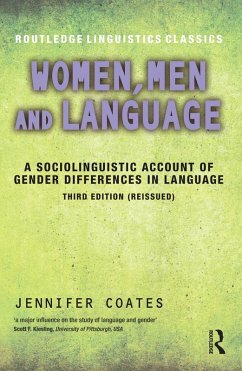
Language, Bureaucracy and Social Control (eBook, PDF)
Versandkostenfrei!
Sofort per Download lieferbar
61,95 €
inkl. MwSt.
Weitere Ausgaben:

PAYBACK Punkte
31 °P sammeln!
Language, Bureaucracy and Social Control explores the varying inter-relationships between language, forms of bureaucratic organisation and social control. The text provides a detailed examination of the discursive dimensions of some of the key techniques of modern power: the 'productive' surveillance practices of administrative and public service institutions. Special attention is paid to recent developments within the state domain and the private economy such as the introduction of consumerism and promotional practices in welfare institutions, and the spread of bureaucratisation in contexts s...
Language, Bureaucracy and Social Control explores the varying inter-relationships between language, forms of bureaucratic organisation and social control. The text provides a detailed examination of the discursive dimensions of some of the key techniques of modern power: the 'productive' surveillance practices of administrative and public service institutions. Special attention is paid to recent developments within the state domain and the private economy such as the introduction of consumerism and promotional practices in welfare institutions, and the spread of bureaucratisation in contexts such as banking and education.
Dieser Download kann aus rechtlichen Gründen nur mit Rechnungsadresse in A, B, BG, CY, CZ, D, DK, EW, E, FIN, F, GR, HR, H, IRL, I, LT, L, LR, M, NL, PL, P, R, S, SLO, SK ausgeliefert werden.













